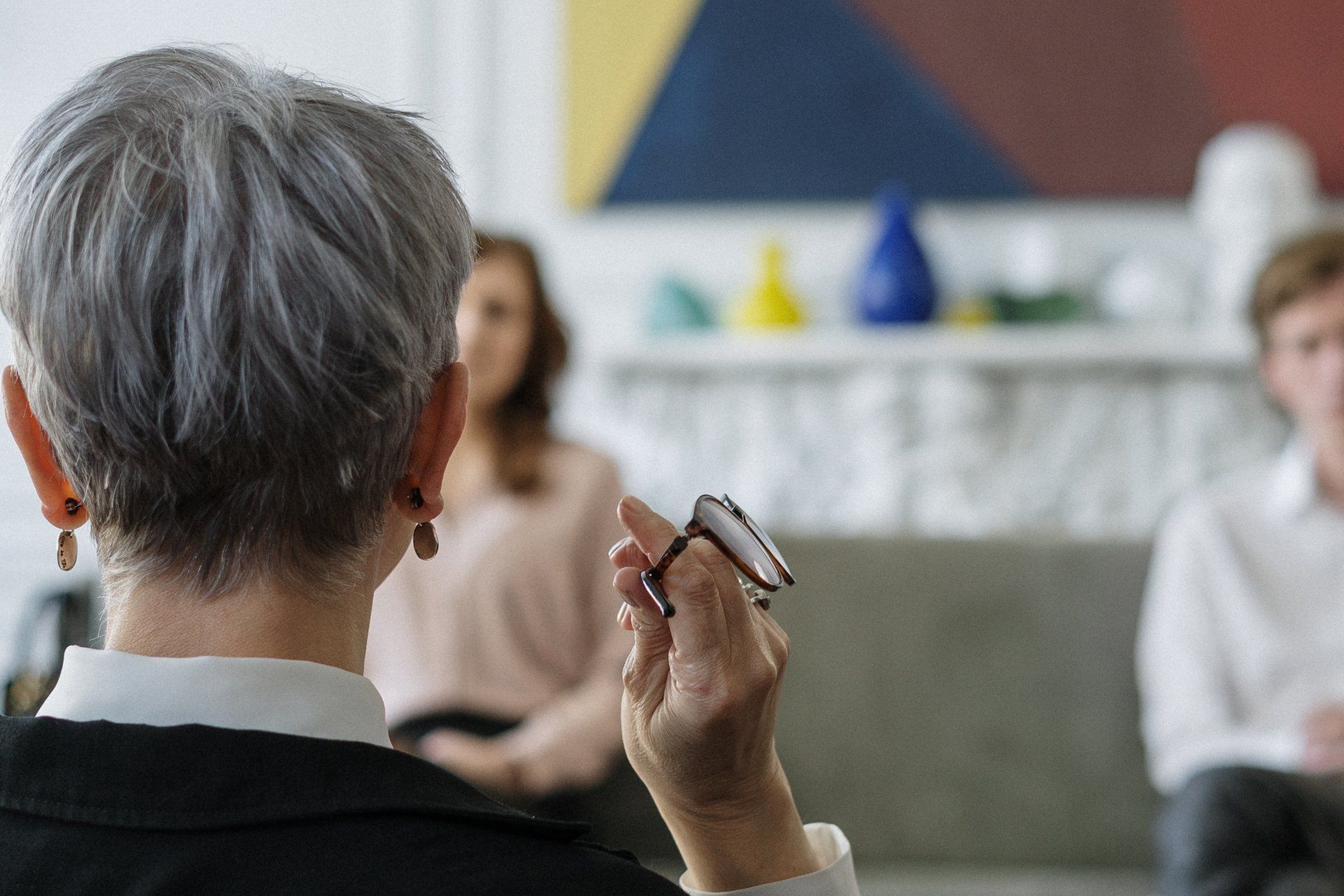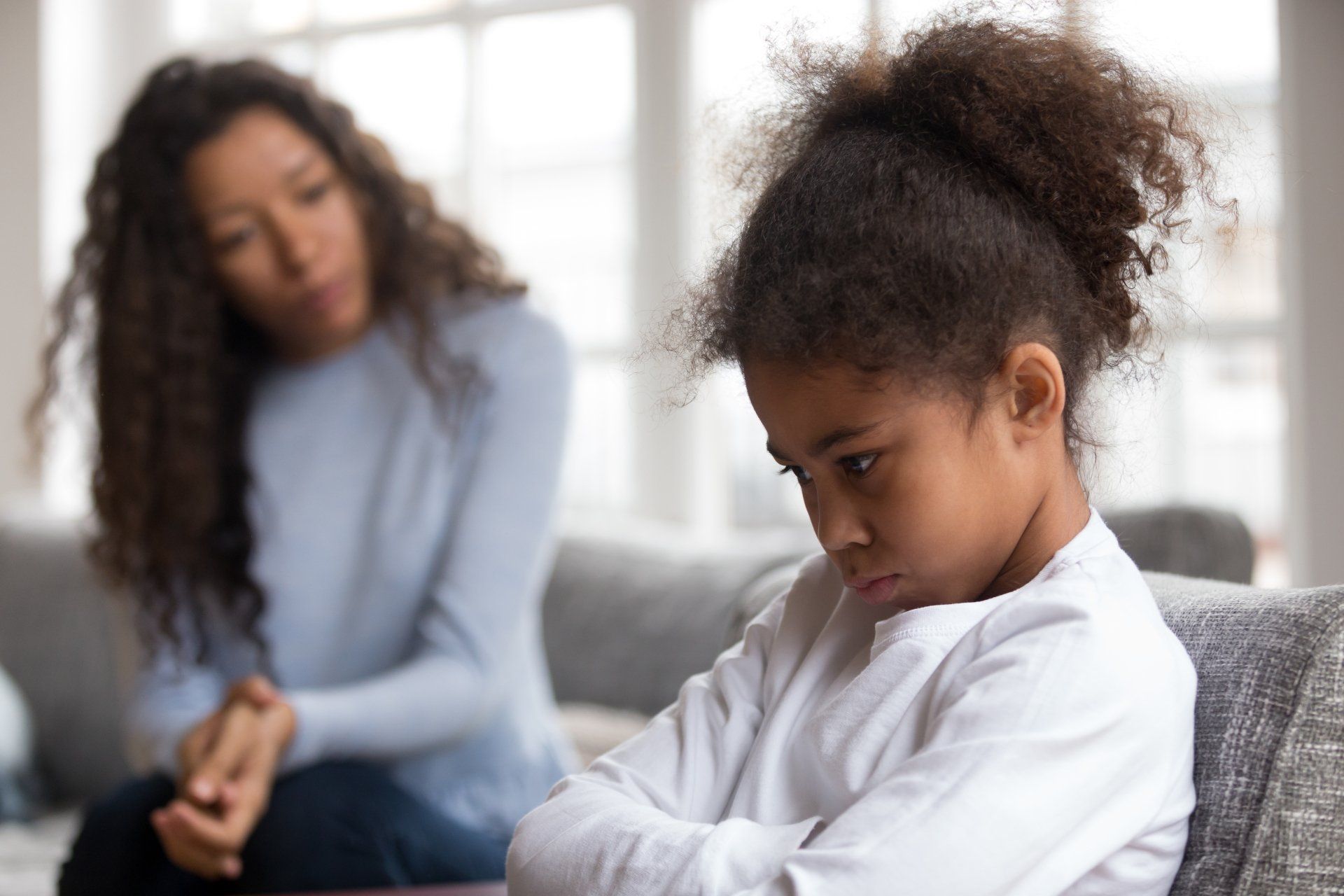Blog Articles

Parenting is one of the most rewarding and challenging roles a person can take on. As a parent, you will navigate your child’s emotional, social, and cognitive development, which can be both fulfilling and overwhelming. This journey can be even more complex when co-parenting, managing ADHD-related behaviors, or seeking additional support through counseling and therapy. That’s where our Parenting Skills Group comes in. Our virtual group sessions provide parents with the essential tools and skills to raise well-adjusted children. Each week, we focus on practical strategies that promote positive behaviors, emotional regulation, and effective communication—all while fostering family growth. Whether you're dealing with tantrums, school challenges, or co-parenting struggles, we’re here to help. This group will explore essential parenting techniques, including: How to communicate more effectively with your child Strategies for managing challenging behaviors, including those related to ADHD Approaches to encourage emotional and social development Navigating co-parenting dynamics in a supportive and constructive way By the end of the 12 sessions, you’ll have the tools needed to create a nurturing environment that strengthens your family’s connection and supports your child’s growth. One of the greatest benefits of joining our group is connecting with other parents facing similar challenges. Parenting—especially when dealing with ADHD, co-parenting struggles, or behavioral concerns—can sometimes feel isolating. Our group provides a supportive space to share experiences, exchange ideas, and learn from one another. Building these connections fosters a sense of community, reducing stress and promoting shared growth. Accessible Support in Broward County Sessions are held virtually, making it easy for parents across Broward County to participate from the comfort of their own home. Parenting can be tough, but you don’t have to do it alone. Join our Growing Together: Parent Skills Group to gain the confidence, support, and knowledge you need to thrive in your parenting journey. To register or for more information, contact us at (954) 577-0095 . Let’s work together to make a lasting, positive impact on your child’s well-being and your family’s future. Lisa Saponaro, Ph.D. Licensed Clinical Psychologist Center for Psychological Growth and Wellness We Nourish ~ You Flourish www.Plantationpsychologists.com 954-577-0095

Understanding the Food-Mood Connection: The food we consume can directly influence our mood, emotions, and overall mental well-being. Nutritional deficiencies and imbalances can affect brain chemistry, impacting our energy levels, cognition, and emotional stability. Conversely, consuming a well-balanced diet with essential nutrients can promote optimal brain function, stabilize mood, and improve overall mental health. The Importance of Nutrition for Mental Health: Research increasingly demonstrates that nutrition plays a significant role in mental health. Essential nutrients, including omega-3 fatty acids, B vitamins, magnesium, and zinc, support the production of neurotransmitters and regulate brain function. A deficiency in these nutrients has been linked to an increased risk of depression, anxiety, and other mental health disorders. At Plantation Psychologists, we emphasize the incorporation of nutrient-rich foods to support mental well-being. Gut Health and Mood: The gut-brain connection is a fascinating area of study, revealing the intricate relationship between our digestive system and our mental health. The gut microbiome, the community of bacteria residing in our intestines, influences brain function, mood regulation, and the production of neurotransmitters. Nurturing a healthy gut through a balanced diet, rich in fiber, prebiotics, and probiotics, can positively impact our mental and emotional well-being. Promoting Wellness through Nutritional Guidance: At Plantation Psychologists, we recognize the importance of a holistic approach to well-being, including nutrition. Lisa Saponaro, Ph.D., and our team of dedicated professionals provide nutritional guidance tailored to each individual's unique needs. Through evidence-based practices, we help clients make informed choices that support optimal mental health, enhance mood stability, and foster overall wellness. Nutrition for Life-Long Well-Being: Integrating nutrition as a fundamental part of your lifestyle promotes long-term well-being. It is important to develop sustainable eating habits that support mental health and overall vitality. Our team at Plantation Psychologists offers personalized strategies and tools to help individuals create a balanced and nourishing diet that suits their preferences, dietary needs, and goals. Conclusion: The relationship between food and mood is an important aspect of mental and emotional well-being. At Plantation Psychologists, Lisa Saponaro, Ph.D., and our team are committed to guiding individuals in South Florida, including Davie, Plantation, Sunrise, Weston, and beyond, on their journey to optimal mental health and wellness. By understanding the profound impact of nutrition on mood and emphasizing the connection between gut health and mental well-being, we empower individuals to make informed choices that support their overall vitality and nourish both their bodies and minds. To learn more about our services or to schedule a consultation, please visit our website or contact us today.

In today's digital age, social media platforms like TikTok and Instagram have become increasingly popular among teenagers. While these platforms offer opportunities for self-expression and connection, it is essential for parents to be aware of the potential concerns surrounding their children's social media use. In this blog post, we discuss the impact of TikTok and Instagram on body image, anxiety, and depression among teenagers, drawing on recent research from the American Psychological Association (APA). We also provide insights and recommendations from Lisa Saponaro, a leading psychologist at Plantation Psychologists, located in South Florida, specifically Plantation. The Influence of Social Media on Body Image: Social media platforms often promote an idealized and curated version of beauty and body image, which can lead to negative self-comparisons and dissatisfaction among teenagers. The APA study highlights that exposure to idealized body images on platforms like TikTok, Snapchat and Instagram are associated with increased body dissatisfaction, disordered eating behaviors, and a higher risk of developing negative body image perceptions. This is particular true for adolescent girls who receive targeted messages promoting unrealistic and idealized body images. Fueling Anxiety and Depression: The constant exposure to carefully curated images, comments, and social comparison on social media platforms can contribute to heightened anxiety and depressive symptoms among teenagers. The APA study underscores that excessive social media use is linked to increased levels of anxiety and depression. The constant pressure to gain likes, followers, and maintain a perfect online image can create feelings of inadequacy and low self-esteem. Recommendations for Parents: 1. Open Communication: Foster an open and non-judgmental dialogue with your teenager about their social media use. Encourage them to share their experiences, concerns, and feelings related to these platforms. Provide support and guidance in navigating the challenges that may arise. 2. Set Healthy Boundaries: Establish clear guidelines for screen time and encourage a healthy balance between online and offline activities. Collaboratively develop a family media plan that ensures designated periods for tech-free activities and quality family time. 3. Promote Critical Thinking: Encourage your teenager to be critical consumers of social media content. Help them understand the impact of filters, photo editing, and the curated nature of online personas. Teach them to question unrealistic beauty standards and to value authenticity over perfection. 4. Encourage Positive Online Interactions: Encourage your teenager to engage in positive and meaningful interactions online. Help them identify accounts that promote body positivity, mental health awareness, and empowerment. Encourage them to follow accounts that provide educational content and encourage healthy self-expression. 5. Be a Role Model: Remember that your own social media use can influence your teenager's behavior. Model healthy habits by maintaining a balanced and mindful approach to your own online engagement. The Expert Perspective - Lisa Saponaro, Plantation Psychologists: Lisa Saponaro, owner and psychologist at the Center for Psychological Growth and Wellness, emphasizes the importance of parental involvement and awareness. She advises parents to stay informed about the latest trends and challenges on social media platforms. She also highlights the significance of fostering a supportive and validating home environment, where teenagers feel comfortable discussing their experiences and emotions related to social media. Conclusion: As parents, it is crucial to be mindful of the potential impact that social media platforms like TikTok, twitter, Snapchat and Instagram can have on our teenagers' well-being. The APA study and expert insights highlight the links between social media use, body image concerns, anxiety, and depression among adolescents. By maintaining open communication, setting healthy boundaries, promoting critical thinking, and encouraging positive online interactions, we can help our teenagers navigate the social media landscape in a way that supports their mental health and overall well-being. Together, let's empower our teenagers to develop a healthy relationship with social media and embrace their unique identities beyond the digital realm.

Navigating the Risks of Social Media: Insights from the American Psychological Association's Recent Study In today's digitally connected world, social media has become an integral part of our lives, especially for adolescents and young adults. Platforms like Facebook, Instagram, and Twitter provide a space for individuals to connect, express themselves, and stay updated with the latest trends. However, the American Psychological Association (APA) has recently shed light on the potential risks associated with excessive social media use, particularly for the mental well-being of adolescents. As therapists and counselors at the Center for Psychological Growth and Wellness, led by Dr. Lisa Saponaro, a respected psychologist in South Florida, we find it crucial to address these concerns and explore the implications they hold for the field of psychology. The Impact on Adolescent Mental Health: The APA's recent study has revealed several noteworthy findings regarding the impact of social media on adolescent mental health. One key finding suggests that excessive use of social media may contribute to feelings of loneliness, depression, and anxiety in young individuals. As practitioners at the Center for Psychological Growth and Wellness, Dr. Lisa Saponaro and her team recognize the significance of these findings and are dedicated to providing support and guidance to adolescents who may be struggling with the psychological effects of social media use. Understanding the Role of Social Comparison: One of the factors that contribute to the negative impact of social media on mental health is the phenomenon of social comparison. Adolescents often compare their own lives, achievements, and appearances to the carefully curated posts of their peers, leading to feelings of inadequacy, low self-esteem, and a distorted sense of reality. Dr. Lisa Saponaro and the providers at the Center for Psychological Growth and Wellness, emphasize the importance of addressing these comparisons in therapy sessions. Through individual counseling and family therapy sessions, adolescents can gain insights into managing social comparison, developing healthy self-perception, and fostering a sense of self-worth that is not solely dependent on external validation. Cyberbullying and Online Harassment: Another significant risk associated with social media use among adolescents is the prevalence of cyberbullying and online harassment. The APA study highlights that these forms of digital abuse can have severe psychological consequences, including increased rates of depression, anxiety, and even suicidal ideation. Dr. Lisa Saponaro and the team at the Center for Psychological Growth and Wellness are well-equipped to address these challenges. With their expertise in adolescent therapy and counseling, they provide a safe space for young individuals to discuss their experiences, heal from the effects of cyberbullying, and develop effective coping mechanisms to navigate the digital landscape. The Need for Digital Literacy and Healthy Online Habits: Given the influence of social media on adolescent mental health, therapists, counselors, and psychologists at the Center for Psychological Growth and Wellness recognize the importance of promoting digital literacy and healthy online habits. Dr. Lisa Saponaro, with her extensive experience and expertise, guides adolescents in developing critical evaluation skills to identify misinformation and navigate social media responsibly. By integrating digital literacy into therapy and counseling sessions, the Center empowers young individuals to make informed decisions about their social media use, ultimately reducing the potential risks to their mental health. Conclusion: As mental health professionals at the Center for Psychological Growth and Wellness, located in the heart of Plantation, FL it is crucial for us to recognize and address the risks associated with social media use, especially among adolescents. The recent study by the American Psychological Association sheds light on the impact of excessive social media use on mental well-being and emphasizes the need for digital literacy and healthy online habits. By incorporating these insights into our therapy and counseling practices, we, at the Center for Psychological Growth and Wellness, aim to help our adolescent clients navigate the digital landscape with resilience, foster positive self-perception, and promote their overall mental health and well-being. We support the local South Florida communities of Weston, Davie, Sunrise, Fort Lauderdale, Cooper City and Broward County in raising resilient teens. To learn more about our services and to connect with Dr. Lisa Saponaro and her team, visit www.plantationpsychologists.com

The first day of school always comes with an overwhelming number of different emotions. Students can feel happy, excited, anxious, nervous, stressed, sad, and even scared. Here are some risk factors to look out for in your child or teen: Not wanting to go to school Physical complaints (stomach hurting, headache, nausea, vomiting) Frequent nurse visits Not turning in assignments Declining grades Avoiding social groups Skipping classes or school Complaints of bullying Sleep or eating changes Mood swings Disinterest in favorite activities Panic or anxiety attacks Self-harm As parents how can we help our children and teens cope and make sure they have a successful academic year? Below we have some tips for you! 1. Organize, organize, organize! Children thrive on structure and organization. Create a visual schedule for them to follow. Include important due dates, school events, and when extracurricular activities will occur. Allow them to add what is important! Giving them an idea of what to expect during the school year may not give anxiety a chance to grow. 2. Positive affirmations to build confidence Load your child up with positive affirmations they can remember all day long! Encourage them to face difficult challenges, work through strong emotions, and build up their self-esteem. Some examples of positive affirmations include: “I can do hard things!” “I believe in myself and my goals,” “Obstacles help me grow and learn,” and “It is okay if I make mistakes.” 3. Help them emotionally ground Using grounding techniques can help your child or teen in times of stress and distress. The five senses grounding technique is our favorite! Have your child describe 5 things they see, 4 things they feel, 3 things they hear, 2 things they smell, and 1 thing they can taste. This can help them get back into the present moment and feel a sense of calm. You can also practice deep breathing and use sensory toys or fidgets as well. 4. Create a routine Remember how we said children thrive on structure? Well, here is another way you can provide that. Create a morning, after school, or evening routine (you can do all three!). Creating a predictable routine can give your child a sense of stability. Meditate, read a book, go to the park, create a silly dance, make a funny song, have a calming lavender bath, or set aside time to cuddle. Be sure to build 8 hours of sleep into their routine. Having a simple routine can help your child during times of transition. 5. Positive reinforcement goes a long way! Imagine going to work and not getting paid. Would you still go? Luckily, children can feel rewarded by something much smaller (and cheaper) than your average paycheck. Provide options of what they can earn for different behaviors at school, specific grades on assignments, or managing their homework load! Watch a new movie, get them their favorite ice cream, fruit, or candy, take them to a water park, or give them an extra hour of video games. Reward the choices you appreciate. 6. Be specific about the struggles your child or teen has If your student struggles with particular subjects or skills, inform their teachers about what will help them. Providing your child’s teachers with tools that you know work for your child will increase their chance for a successful year. 7. Get involved with the academic team for your child or teen If your student struggles academically despite your efforts, maybe setting them up with an academic plan is the next step. Speak to the guidance counselor or resource officer about psychological testing or tutoring options. Having an individualize education plan (IEP) or 504 plan can be extremely helpful in ensuring your child’s success in school. Dr. Lisa Saponaro works within Broward County and offers academic testing and parent training along with counseling for children, teens, and parents at the Center for Psychological Growth and Wellness in South Florida. Located in the heart of Plantation, the center is easily accessible from Davie, Sunrise, Weston, Fort Lauderdale, Cooper City, and Southwest Ranches. We can help set up you and your children for academic success and so much more!

In comparison with typically conflictual divorces, collaborative divorce offers a more cooperative option and puts the power to reach decisions and agreements in the hands of the people concerned. In a collaborative divorce, both parties have an attorney, and both are dedicated to helping the parties reach a mutually beneficial arrangement, unlike in an adversarial divorce when each party represents themselves. Couples may feel confident in knowing that their legal interests are being protected and that their family, not the court, will ultimately make the final choices as a result of this. In contrast to mediation, in the event that the collaborative process is abandoned or proves unsuccessful, the collaborative professionals are bound to a collaborative outcome and are prohibited from taking part in legal actions. But just like mediation, the collaborative method helps family members take charge of their situation, finds original solutions, and is a less costly divorce procedure than going to court. A loving, supporting, and caring connection between parents and children is supported by the ideal resolution. All parties can go from a collaborative divorce with the assurance that they will only sign an agreement that they feel acceptable, even if it is unusual for neither side to obtain all they desire. The purpose of the collaborative approach is to guarantee that choices are made with your long-term goals in mind by defining values and finding common ground. All parties involved in a collaborative divorce must act in good faith and with honesty, with the best interests of the whole family as their first priority. Families with children may benefit most from collaborative divorce since the outcomes are less likely to be relitigated down the road. It is linked to generally decreased parent-child conflict, which is, as we all know, best for the children. The process of Collaborative Divorce is created with the best interests of the children in mind, assisting in making sure their requirements are met. Psychologists frequently play the position of Child Specialist in the collaborative process, in addition to being divorce coaches. As a neutral mental health practitioner, the Child Specialist has particular training in family structures and child development as it relates to divorce and adjustment. In order to help the children during the divorce and to better understand their needs and wishes, this expert may meet with them one-on-one. For the past 20 years, Dr. Lisa Saponaro has been a licensed clinical psychologist in South Florida. She has often dealt with families and children throughout her career. She provides diagnostic and evaluation services for both adults and children in her Plantation, Florida private office, the Center for Psychological Growth and Wellness. Dr. Saponaro has treated a wide range of mood and behavioral disorders, as well as anxiety, depression, autism, PTSD, suffering, and addictions. In order to help families receive well-rounded care and prioritize the needs of their children, Dr Saponaro has collaborated with a variety of divorce professionals, including attorneys, parenting coordinators, reunification specialists, Guardian Ad Litems, and financial advisors. She has also been acknowledged by the Broward County Courts as an expert in child matters pertaining to divorce. Following many years of collaborating with families, Dr. Saponaro is now a member of the South Florida Collaborative Professionals and the International Association of Collaborative Professionals. She works as a divorce coach and child specialist in her capacity as a collaboratively trained divorce professional. For additional information on how to schedule a consultation right now, contact Drsaponaro@gmail.com or reach her at 954-577-0095.

In a world bustling with noise, responsibilities, and constant stimulation, it's easy to lose sight of our own mental well-being. Amidst life's challenges, stresses, and uncertainties, it's essential to have a sanctuary where one can delve into the depths of their mind, unravel tangled emotions, and find solace in self-discovery. At the Center for Psychological Growth and Wellness, individual psychotherapy serves as that sanctuary, offering a safe space for individuals to embark on a journey of healing and personal growth. Individual psychotherapy, often referred to simply as therapy or counseling, is a collaborative process between a trained therapist and a client. It provides a confidential and supportive environment for individuals to explore their thoughts, feelings, and behaviors in a non-judgmental setting. Through empathetic listening, insightful questioning, and evidence-based techniques, therapists at the Center for Psychological Growth and Wellness work hand in hand with clients to navigate the complexities of their inner world. One of the core principles guiding individual psychotherapy at our center is the belief in the inherent resilience and potential for growth within each individual. No matter the struggles one may face – whether it be anxiety, depression, trauma, relationship issues, or life transitions – therapy offers a path towards healing and empowerment. By fostering self-awareness, resilience, and coping skills, clients can cultivate a deeper understanding of themselves and the world around them. The therapeutic journey is highly personalized, tailored to meet the unique needs and goals of each individual. Therapists at the Center for Psychological Growth and Wellness utilize a variety of therapeutic modalities, including cognitive-behavioral therapy (CBT), psychodynamic therapy, mindfulness-based approaches, and more. By drawing from diverse theoretical orientations and evidence-based practices, therapists adapt their approach to best suit the preferences and strengths of each client. Moreover, individual psychotherapy is not just about addressing problems; it's also about nurturing strengths and fostering personal growth. Through the therapeutic process, clients often discover new insights, develop healthier coping strategies, and uncover untapped potentials within themselves. Whether it's gaining clarity about one's values and goals, improving communication skills, or enhancing self-esteem, therapy empowers individuals to lead more fulfilling and meaningful lives. One of the unique aspects of individual psychotherapy at our center is the emphasis on holistic well-being. Recognizing the interconnectedness of mind, body, and spirit, therapists take a holistic approach to treatment, addressing not only psychological issues but also factors such as physical health, lifestyle, and social support. By addressing the whole person, therapy promotes balance, resilience, and overall wellness. At the Center for Psychological Growth and Wellness, we understand that taking the first step towards therapy can be daunting. That's why we strive to create a warm, welcoming, and inclusive environment where clients feel heard, understood, and supported. Our team of experienced therapists is dedicated to providing compassionate care and empowering clients to embark on a journey of self-discovery and healing. In conclusion, individual psychotherapy at the Center for Psychological Growth and Wellness offers a transformative journey towards self-discovery, healing, and personal growth. Through a collaborative and personalized approach, therapists empower clients to navigate life's challenges, cultivate resilience, and unlock their full potential. If you're ready to embark on a journey of self-exploration and empowerment, we invite you to take the first step towards healing with us. Your journey towards psychological growth and wellness begins here.



